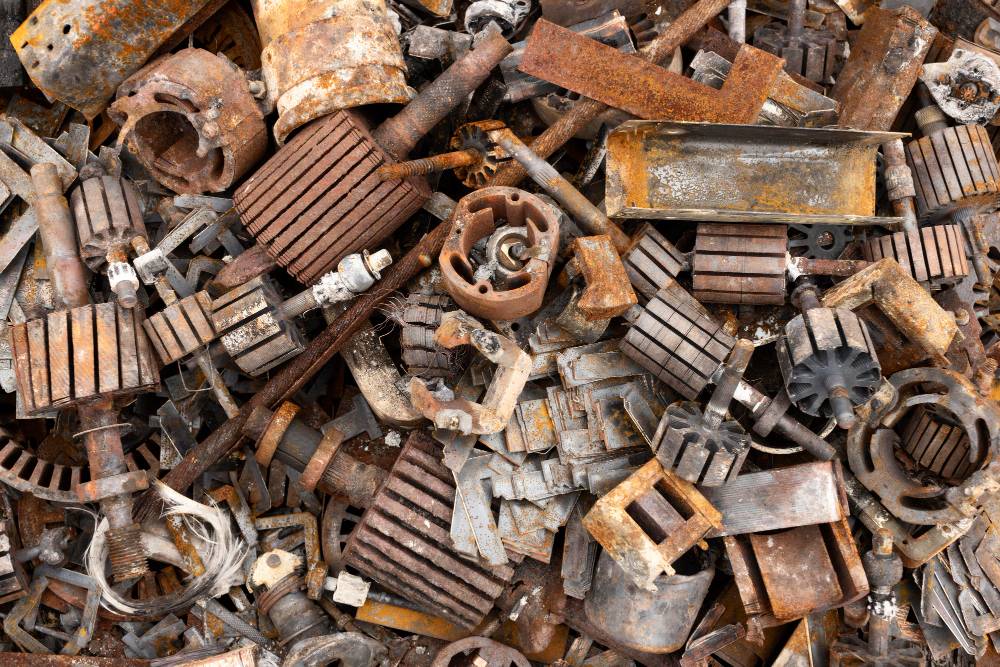

JUN 08, 2024
Are you collecting brass items without realizing their worth? Brass is a non-ferrous metal that does not contain iron and resists rust. Thus, if you want to generate additional funds by selling off these brass items to scrap metal buyers, RCM Recycling is here to show you how to maximize its return.
Before selling brass scrap metal, you must know exactly which variety(s) exist within your collection. Brass can take various forms—old plumbing fixtures, keys, musical instruments, or decorative items are among these which require separation. Mixing your brass with other types can cause prices to decrease at scrap metal companies, whereas clean, well-sorted brass will always command higher returns from scrap dealers.
Cleaning and sorting brass scrap can eliminate non-metal attachments such as non-metallic parts from plumbing fixtures (i.e., rubber/plastic sealants/connectors). Clean brass without contaminants is more desirable for recycling centers; also, take time to identify different varieties, such as yellow brass (standard in plumbing fixtures), being more valuable than red brass used for valves or industrial items (i.e., red brass used on valves/industrial items).
Brass scrap prices fluctuate regularly according to market forces, so conducting extensive research is advisable before visiting scrap metal buyers or recycling centers. Many scrap yards publish current rates online to allow you to negotiate in your best interests for the best deal.
Not all scrap metal companies offer equal services or prices. Some offer better deals and prices than others. When searching for scrap metal buyers near you, read reviews online or ask friends and family who have sold scrap before for recommendations of trustworthy sellers who provide transparent pricing with fair weighing practices and transparent quoting processes.
Do not be intimidated to negotiate. Once you know the current market price for brass, discuss this knowledge as your starting point when approaching any scrap metal recycling center to ask about their services and rates for selling brass scrap. Some centers offer preferential rates if your shipment contains large volumes.
When taking brass to a scrap metal company for recycling, they will weigh it to determine its worth and pay it accordingly. Be sure to understand their weighing process—many reputable buyers use certified scales for accurate measurements. Watch as it gets weighed and request a receipt showing its weight and price per pound. This ensures fair compensation is given in return.
When possible, selling large quantities of brass can bring better returns at scrap metal recycling centers due to reduced handling and processing costs. Selling all at once may maximize earnings.
Always adhere to safety and legal guidelines when collecting or transporting scrap metal. Always wear gloves and eye protection when handling old metal items that could contain sharp edges or rusty parts; additionally, make sure that collecting them legally allows it to avoid penalties that come with illegal scrap collection.
Brass and other non-ferrous metals' values fluctuate depending on various factors, including supply and demand, economic climate changes, and international trade policies. By closely monitoring market trends, you can better determine when is best to sell your scrap; doing this might even increase its return considerably!
If you plan to sell scrap metal regularly, developing relationships with trusted buyers is often beneficial in terms of service quality and price. Cultivating such an affiliation could make the selling experience simpler and ultimately more profitable in the long run.
Following these tips from RCM Recycling can maximize the return from non-ferrous scrap brass recycling and always be sure to select an experienced scrap metal recycling center - and have fun recycling!